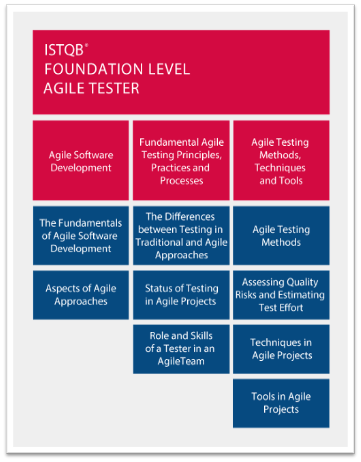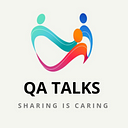Get to know about — ISTQB CTFL-AT
As a reader, if you are into the Software Testing domain then probably (or) rather for sure you might have already heard about ISTQB (International Software Testing Qualification Board) Certifications for Software Testers. Today I would like to share some interesting and insightful information about ISTQB-CTFL-AT Certification.
What is ISTQB?
ISTQB stands for “International Software Testing Qualifications Board”. It’s a non-profit organization with the mission of “advancing the software testing profession”. ISTQB (International Software Testing Qualifications Board) was founded in November 2002 and legally registered in Belgium. This is the only organization that has defined the “ISTQB® Certified Tester” scheme which has become the worldwide leader in the certification of competencies in software testing. A highly appreciated aspect of ISTQB® is that it’s an organization based on volunteer work by hundreds of international testing experts.

ISTQB® exams/certifications are administered by Member Boards. In 2002 ISTQB® was founded by 8 member boards to name them Austria, Denmark, Finland, Germany, Sweden, Switzerland, the Netherlands, and the UK, this clearly states that member boards are classified based on the countries. Currently, there are around 66 member boards across the globe which signifies that 66 countries are currently tied up with the ISTQB program. ISTQB’s official site has the list of all Licensed Member Boards please Click Here to know the list.

There are three paths in the ISTQB certification program. They are Agile, Core, Specialist.
ISTQB Foundation Level is the first level that you can obtain by passing the CTFL exam. It forms the entry-level to be certified as a software tester, which includes the understanding of theoretical and practical concepts of Software Testing. If anyone is interested in knowing more details on CTFL, please visit my Blog “Let’s Chat About — ISTQB CTFL” published in “Synapse QA — Learn | Share | Grow” Community website — Link is Here.
After having the insight on the core foundational knowledge of Software Testing, we can then decide our path from the three different areas i.e. Agile or Core or Specialist to excel in our Testing journey. But choosing a path of your interest is another critical thing to handle, although been in the Testing domain for more than 8 years, for me to understand clearly my area of focus was not an easy job. I always had an urge to explore the area of Agile as this is the approach that is being evolved at a faster pace in the tech industry, hence to kick start this Agile Testing journey I took the baby step of learning or rather exploring the CTFL-AT Certification provided by ISTQB, that’s where my encounter with CTFL-AT happened. For the past few months, I spent time exploring and preparing the ISTQB-CTFL-AT Certification and appeared for it, happy to share that I cleared it last November 2022. So today I’m here to share some useful information about the ISTQB-CTFL-AT Certification and how important it is in our career and learning curve.
Agile Testing and ISTQB® Agile Tester Extension
Agile Testing
Agile testing is an evolving approach in Software Testing. Nowadays Agile software practices are being employed within many organizations. More and more test teams and testers are participating in agile projects. A tester in an agile project should be involved in every activity of the agile team, not just in plain testing activities, and will need a skilled mindset compared to a tester working on a traditional project.
Testers will be an integral part of an agile team together with developers and business representatives. A Tester in an agile team needs to use his or her expertise in creating testable examples of desired behavior provided by the business representatives and then collaborate with the developers to turn those into specifications that will guide all development activities. There are a lot of things to learn about testing and quality in agile projects.

Agile testing mindset, test design based on features and user stories, and providing risk-based feedback on the quality of products are the important aspects of Agile Testing. To have knowledge on all such areas CTFL-AT Certification can serve as the best kickstart. So Let’s dive into the Certification details and know what exactly does it offer to us.
ISTQB® Agile Tester Extension
Pre-Requisite
A candidate willing to take up the ISTQB — Agile Tester Extension Foundation Level Certification is required to be certified in ISTQB Certified Tester Foundation Level (CTFL).
Who Should Attend?
This course is appropriate for testers, test coordinators, test managers, user acceptance testers, or software developers who work or are planning to start working with Agile or any other iterative projects, but a background in basic development and testing processes is highly recommended.
Validity
Foundation Level and Advanced Level ISTQB® certificates, including the Specialist ones, are valid for life. So the ISTQB CTFL-AT once cleared is valid for a lifetime.

CTFL-AT Objective
CTFL-AT helps in clearing the concepts in the following areas:
· The fundamentals of Agile Software Development and the various Agile approaches that are recognized and how these embrace the principles of the Agile Manifesto.
· How do Agile projects differ from traditional projects and what methods are implemented to demonstrate the status of testing throughout the project?
· It helps in understanding the role of the tester on an Agile project and how to contribute within a project, estimating user stories, assessing quality risks, generating testable acceptance criteria, and interpreting relevant information to support testing activities.
· It also helps to understand the various tools that support testing in an Agile project and how these differ from a traditional project.
CTFL — AT Content

The above picture explains the 3 different Chapters within the ISTQB CTFL-AT Syllabus. A brief overview of each chapter is below:
Chapter 1: Agile Software Development
· This Chapter has details about the Fundamentals of Agile Software Development, the basic concept of Agile software development based on the Agile Manifesto, advantages of the whole-team approach alongside the benefits of early and frequent feedback. Also the detailed view of the different aspects of Agile Approaches
· In short in this chapter we will understand the Agile Approaches and its core concepts.
Chapter 2: Fundamental Agile Testing Principles, Practices, and Processes
· Here we will learn the differences between Testing in Traditional and Agile Approaches, how the testing activity is undergone in Agile projects and non-Agile projects.
· Also more process-oriented topics are covered in this chapter, for instance where we can have information on tools and techniques used to communicate the test status, test progress, and product quality in an Agile project, the process of evolving tests across multiple iterations and explain why test automation is important to manage regression risk in Agile projects.
· Alongside some insight is also poured in area of what are the Role and Skills of a Tester in an Agile Team
Chapter 3: Agile Testing Methods, Techniques, and Tools
· This chapter covers the various Agile Testing Methods for example Concepts of test-driven development, acceptance of test-driven development, and behavior-driven development
· Also we will learn how to apply test techniques to derive test cases from other software work products.
· Alongside in a SCRUM team what roles are assigned to a Tester is elaborated in this topic.
· More details on the different tools available to testers according to their purpose and to activities in Agile projects are discussed in this Chapter.
Materials to choose for Preparation
The core Syllabus and the Textbook form the major source of CTFL-AT preparation.
· “Agile Testing Foundations: An ISTQB Foundation Level Agile Tester guide” by Rex Black is the recommended textbook.
· The ISTQB syllabus can be downloaded from the official website using the link — https://www.istqb.org/downloads/category/5-foundation-level-agile-tester.html
· I personally relied on Online Sources
o Try QA Website: http://tryqa.com/what-is-the-istqb-agile-tester-extension-certification/
o Software Testing Genius Website: https://www.softwaretestinggenius.com/certifications-resources/istqb-agile-tester-extension-exam/
Sample Papers
· ISTQB official site has one set of Sample Paper: Link Here. The candidate must thoroughly walk through the sample paper in order to understand the pattern of questions expected in the exam.
· From personal experience I referred to a few good sample papers online (Example: ISTQB Patshala , Software Testing Genius, ISTQB Guru).
Exam Pattern
The ISTQB — Agile Tester Extension Foundation Level Certification exam consists of 40 multiple choice questions that count in total to 40 marks.

The candidate must get at least 65% (26 out of 40) of the total score in order to clear the exam.
Result and Certificate
Those candidates who pass the certification exam shall receive the certificate from the Qualifications Board they gave their exam. The certificate would be issued by the board you appear for the exam with the official seal of ISTQB in it. Nowadays in consideration of the current pandemic situation softcopy of the certificate is being issued to the successful candidates after 2 months of exam clearance.
Benefits of taking up CTFL-AT
· You can collaborate in a cross-functional Agile team being familiar with principles and basic practices of Agile software development.
· Easily can get adapted to the existing testing experience and knowledge to Agile values and principles.
· Can have more insight in assisting business stakeholders in defining understandable and testable user stories, scenarios, requirements, and acceptance criteria as appropriate.
· Work and share information with other team members using effective communication styles and channels.
Finally, I would like to end my article with my commonly used phrase…
Set a goal,
Make a plan,
Do the work!
Success is on your way! Happy Learning! Happy Testing!
